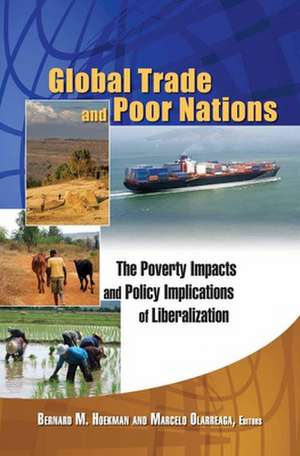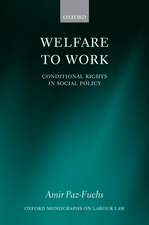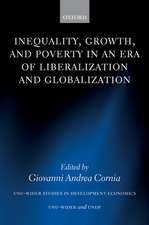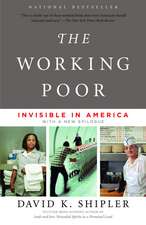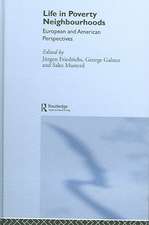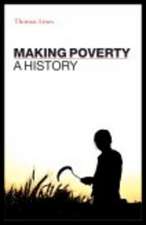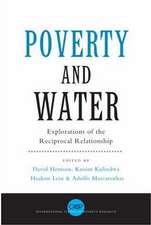Global Trade and Poor Nations: The Poverty Impacts and Policy Implications of Liberalization
Editat de Bernard M. Hoekman, Marcelo Olarreaga Introducere de Ernesto Zedilloen Limba Engleză Paperback – 27 iul 2007
This thoughtful volume assesses the likely impact of reformed trade policies on the poorest of the poor—those on the bottom economic rungs in developing nations. The focus on a spectrum of poor nations across different regions provides some helpful and hopeful guidelines regarding the likely impacts of a global trade reform, agreed upon under the auspices of the World Trade Organization, as well as the impact of such reforms on economic development. In order to facilitate lesson-drawing across different regions, each country study utilizes a similar methodology. They combine information on trade policy at the product level with income and consumption data at the household level, thus capturing effects both on the macro level and in individual households where development policies ideally should improve day-to-day life. This uniformity of research approach across the country studies allows for a deeper and more robust comparison of results.
Preț: 274.44 lei
Nou
Puncte Express: 412
Preț estimativ în valută:
52.51€ • 54.83$ • 43.46£
52.51€ • 54.83$ • 43.46£
Carte tipărită la comandă
Livrare economică 04-18 aprilie
Preluare comenzi: 021 569.72.76
Specificații
ISBN-13: 9780815736714
ISBN-10: 0815736711
Pagini: 254
Dimensiuni: 152 x 229 x 18 mm
Greutate: 0.38 kg
Editura: Brookings Institution Press
Colecția Brookings Institution Press
ISBN-10: 0815736711
Pagini: 254
Dimensiuni: 152 x 229 x 18 mm
Greutate: 0.38 kg
Editura: Brookings Institution Press
Colecția Brookings Institution Press
Notă biografică
Edited by Marcelo Olarreaga and Bernard M. Hoekman - Introduction by Ernesto Zedillo
Descriere
A Brookings Institution Press and Yale Center for the Study of Globalization and Sciences-Po, Paris publication
This thoughtful volume assesses the likely impact of reformed trade policies on the poorest of the poor—those on the bottom economic rungs in developing nations. The focus on a spectrum of poor nations across different regions provides some helpful and hopeful guidelines regarding the likely impacts of a global trade reform, agreed upon under the auspices of the World Trade Organization, as well as the impact of such reforms on economic development.
In order to facilitate lesson-drawing across different regions, each country study utilizes a similar methodology. They combine information on trade policy at the product level with income and consumption data at the household level, thus capturing effects both on the macro level and in individual households where development policies ideally should improve day-to-day life. This uniformity of research approach across the country studies allows for a deeper and more robust comparison of results.
This thoughtful volume assesses the likely impact of reformed trade policies on the poorest of the poor—those on the bottom economic rungs in developing nations. The focus on a spectrum of poor nations across different regions provides some helpful and hopeful guidelines regarding the likely impacts of a global trade reform, agreed upon under the auspices of the World Trade Organization, as well as the impact of such reforms on economic development.
In order to facilitate lesson-drawing across different regions, each country study utilizes a similar methodology. They combine information on trade policy at the product level with income and consumption data at the household level, thus capturing effects both on the macro level and in individual households where development policies ideally should improve day-to-day life. This uniformity of research approach across the country studies allows for a deeper and more robust comparison of results.
